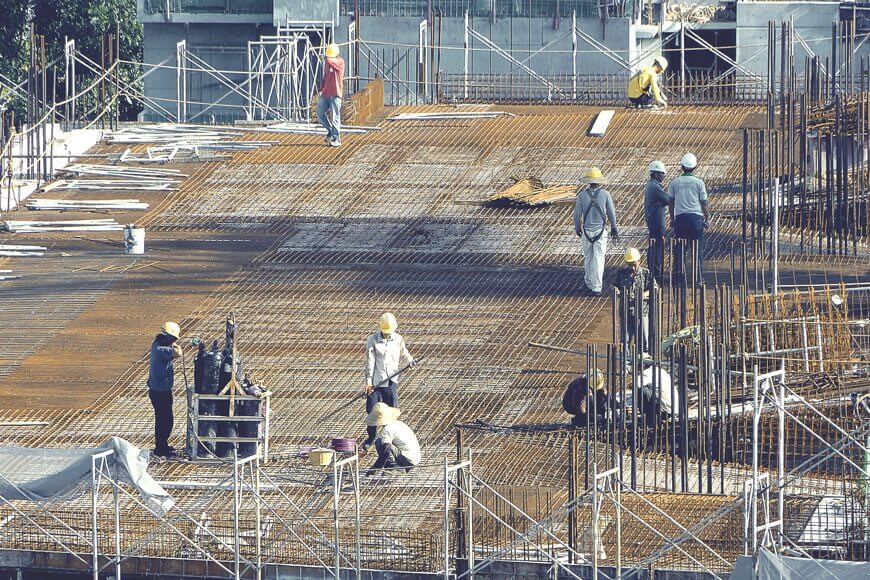Planning is key for every construction project, no matter the size.
As a project manager, you have to attend to every step of the construction process, from design to handover. A single design flaw, drafting mistake, or other oversight can result in significant cost and schedule overruns.
So how do we avoid this? By focusing on better preconstruction practices to define project details before breaking ground.
How you integrate preconstruction planning into your processes will vary based on the project, but there is one common goal of preconstruction: heading off issues before they cause you to go over budget and miss deadlines.
Free eBook: Why WhatsApp and Excel aren’t enough for running complex construction projects
Defining the preconstruction process: scope, schedule, and cost
Preconstruction is an essential part of any construction project—this phase is when the project manager works together with contractors and the client to define three key factors of the venture:
- Scope
- Schedule
- Cost
The project’s scope—what you want to accomplish and the requirements for a successful outcome—will ultimately be how you determine the project’s schedule and costs.
During preconstruction, you’ll use the project’s scope of work and the client’s vision to create the budget and costs involved, the project team and their schedule, and an overall plan to bring true value to the client.
With a solid preconstruction phase, you can identify potential roadblocks, alternatives to save on costs, and scheduling efficiencies that you can implement in the next phase of construction.
Overall, the preconstruction phase can help you set and meet client expectations, setting the project up for success.
You might also like: Construction site management 101: Top tips for a well-managed job site
Why preconstruction is the most important phase of any project
Planning is important for every type of project, but it’s especially important in the construction industry when you consider all the complexities involved, even in seemingly simple projects.
Preconstruction lays the foundation for the entire project—it’s the process that ensures a high-quality build and offers the best chances of finishing on time, on spec, and on budget.
Preconstruction planning:
- Keeps everyone aligned. During preconstruction, every stakeholder comes together to discuss the project details—schedule, budget, etc. – keeping everyone aligned from the start of the project, outlining key expectations, and ensuring the project starts off on solid ground.
- Mitigates risk. The key to mitigating risk during construction projects is identifying potential bottlenecks before you begin work, something that’s almost impossible to do without preconstruction planning. Reducing risk and uncertainty from the beginning increases your project’s chance of success.
- Prevents delays. Determining the project’s schedule and timeline is a huge part of the preconstruction process; it ensures key stakeholders understand what tasks they need to complete and when they need to complete them. Having a predetermined schedule significantly reduces the likelihood of preventable delays.
- Improves efficiency. Preconstruction planning means everyone knows what’s required of them ahead of time, inherently increasing worker efficiency. The result of this efficiency is less time spent on the actual building process, reducing waste, rework, and other issues that can hinder project progress.
Ultimately, a successful preconstruction planning phase leads to various benefits that all affect your bottom line, saving you money and increasing your profit margin.
In fact, the Journal of Construction Engineering and Management published a study stating that projects with better preconstruction planning processes were more successful—they saw average profit margins of 23% compared to margins of -3% in projects with poor preconstruction planning.
Preconstruction planning takes time and effort from all stakeholders involved in the project. But when implemented properly, it reduces risks, delays, costs, and rework, increasing the odds of a successful outcome with higher profit margins.
So is it worth it to invest in your preconstruction processes? That’s a resounding yes.
More to read: 3 keys to align your team around project milestones
 Best practices for preconstruction success
Best practices for preconstruction success
Every construction project will face some amount of unforeseen challenges, but the steps you take during the preconstruction phase will determine how they affect the outcome.
Some best practices for preconstruction success include:
- Accountability. If you want to avoid redesigns, delays, and cost overages (and we know you do), the key is defining clear goals and deadlines during preconstruction and holding everyone accountable for hitting them.
- Communication. From preconstruction to handover, clear lines of communication must start with you and the project owner and go all the way down to the subs and their workers so that the responsible party can handle any problems that pop up efficiently.
- Collaborative scheduling. Preconstruction work must include everyone involved in the project, from designers and engineers to vendors and their supporting staff. The schedule you create should cover more than construction activities—it should include everything from obtaining permits to performing inspections to realistic timelines for completing each phase.
Further reading: Why Construction Scheduling Software is More Efficient
Take control of your projects with better preconstruction practices
Preconstruction can (and should) fit into any construction project, regardless of the type of project delivery method you use. Project managers can head off unforeseeable problems by implementing better preconstruction practices, like those discussed above.
All in all, the more you integrate your preconstruction team in every process, from planning to handover, the better the odds are of delivering your project successfully on budget, on spec, and on time.
Preconstruction is the key to success – but you don’t have to start from scratch. With LB Geniebelt, you can take your preconstruction efforts to the next level. By leveraging this powerful software platform, you can enable real-time communication and collaboration among all stakeholders involved in the project, both on and off-site. This helps to ensure that everyone is on the same page, with up-to-date information about project status, timelines, and requirements.
With LB Geniebelt, you can streamline your preconstruction activities, reduce the risk of errors and rework, and ultimately build better and faster. So if you’re looking to improve your preconstruction practices and take your projects to the next level, be sure to book a personalised demo today and see how LB Geniebelt can help you achieve your goals. Book your personalised demo here.




